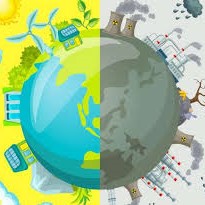Bengaluru has taken the third position among the worst Indian cities affected by air pollution in 2020 with as many as 12,000 deaths, as per the Southeast Asia analysis of the Greenpeace. Delhi has taken the top position with a death count of 54,000, after which Mumbai takes the lead with 25,000 deaths.
The numbers have been calculated with the live air quality data collected using IQAir, which is an air quality monitoring technology provider. The tool also measures economic cost that is triggered by the air pollution on a real-time basis.
A count of 160,000 deaths have been due to the impact of PM 2.5 air pollution which is happening over a span of one year in five highly populated cities – Delhi(30 million), Mexico city (22 million), Sao Paulo (22 million), Tokyo (37 million) and Shanghai (26 million), the statement said.
PM2.5 is indicative of fine particulate matter which is small in size than 2.5 micrometres in diameter. The exposure to PM2.5 points to the environmental hazard which has led to 4.2 million deaths happened in 2015, according to the study.
Greenpeace works towards shifting to a cleaner and greener fuels and other sources of energy to cut down on the air pollution and its impact on lives and economy.
Avinash Chanchal, Climate campaigner, Greenpeace India, said, “Despite recording relatively better air quality this year due to strict lockdown, air pollution continues to be a serious public health issue which also drastically impacts our economy. For the governments of the day, it is crucial that investments are made towards green and sustainable solutions. When we choose fossil fuel over clean energy, our health is put at stake. Polluted air increases the likelihood of deaths due to cancer and stroke, spike in asthma attacks and worsens severity of COVID-19 symptoms.”
Chanchal further added, “We need to ensure our growth demand is fuelled by sustainable and cleaner sources of energy and cities should promote low cost, active and carbon-neutral transport options that prioritises walking, cycling, and public transport, the increased use of clean energy and clean transport will not only improve the public health but it will also strengthen the economy and public money.”


